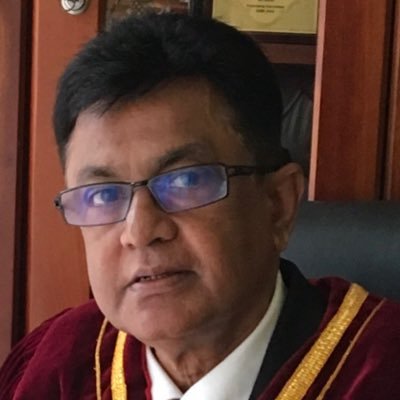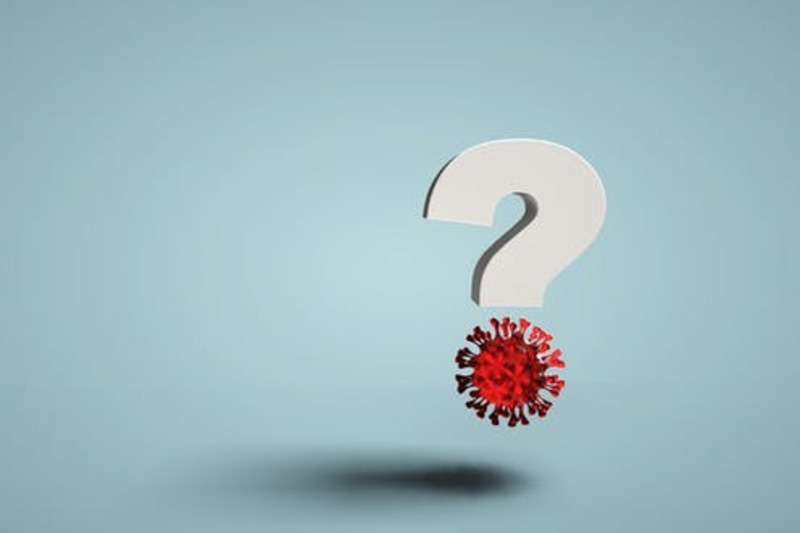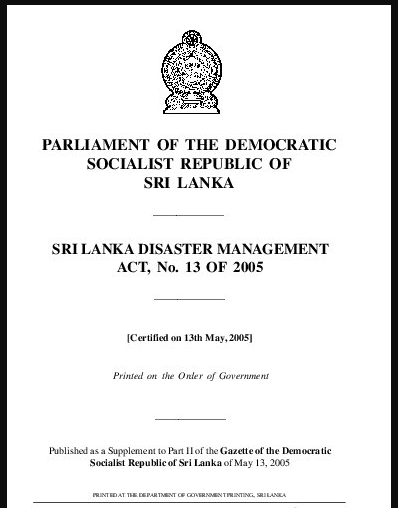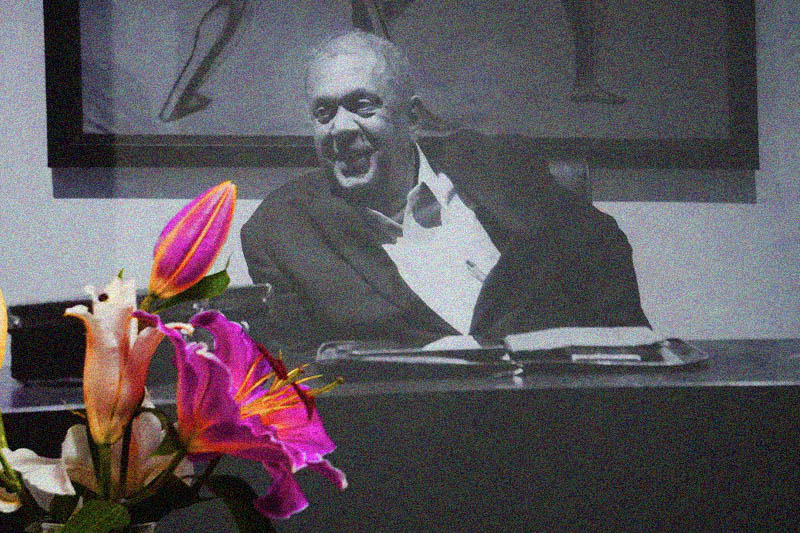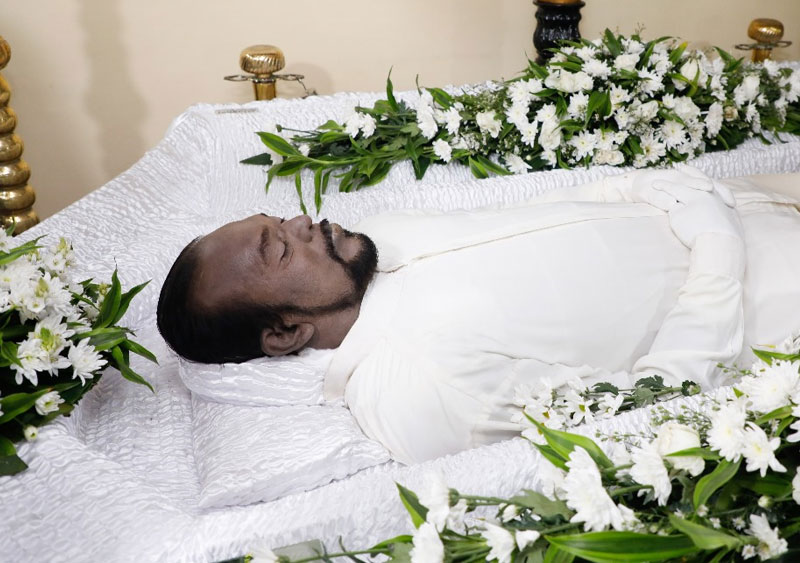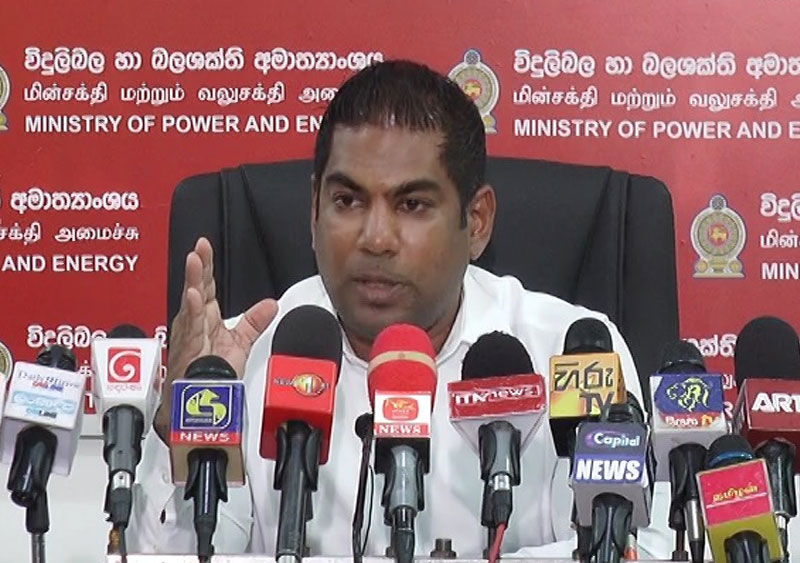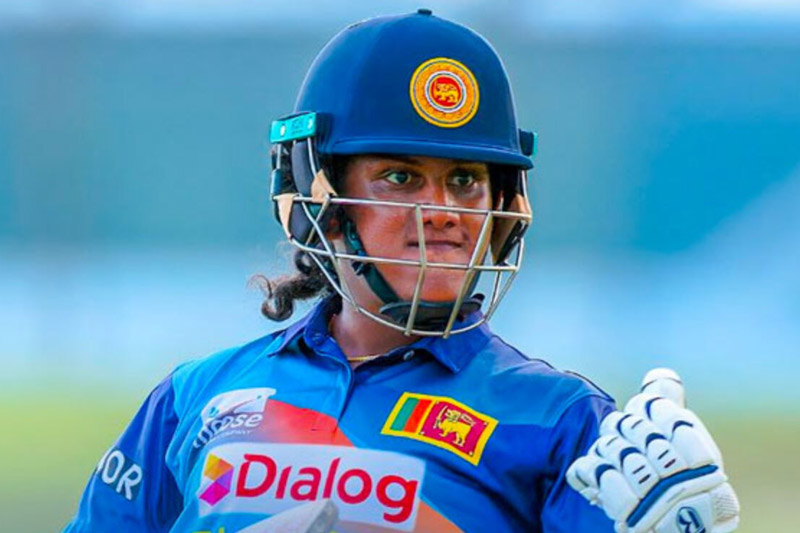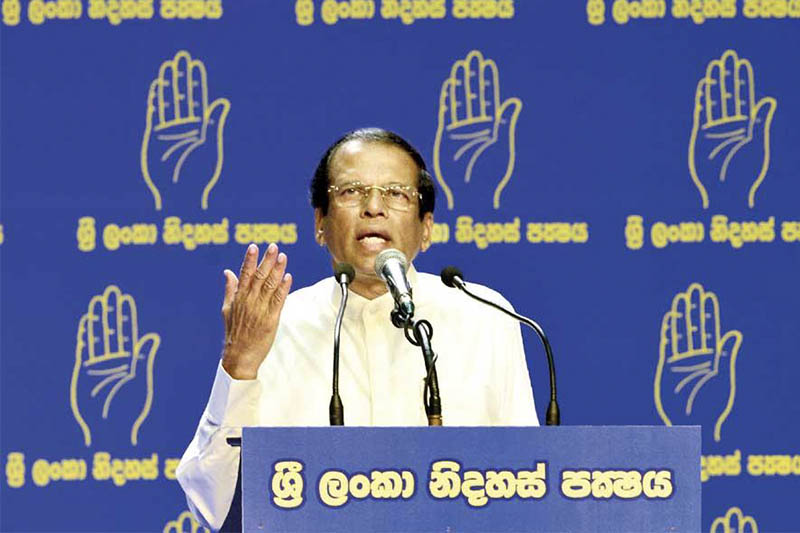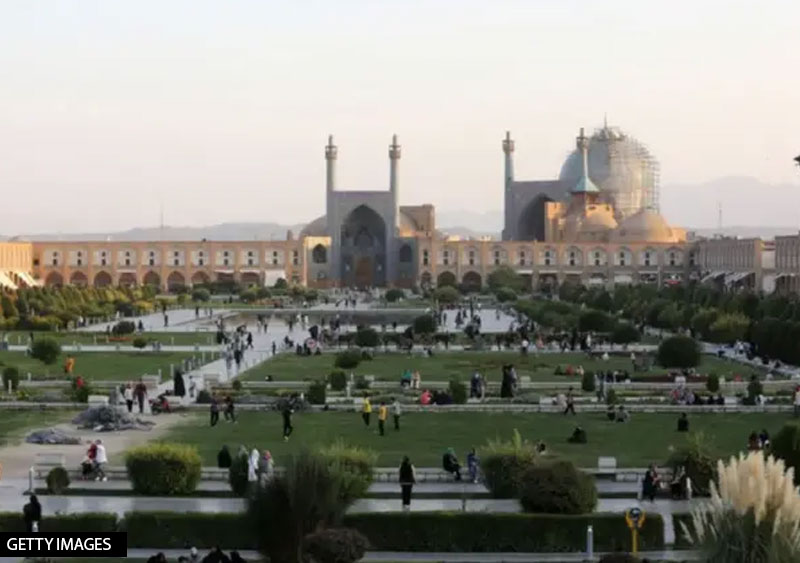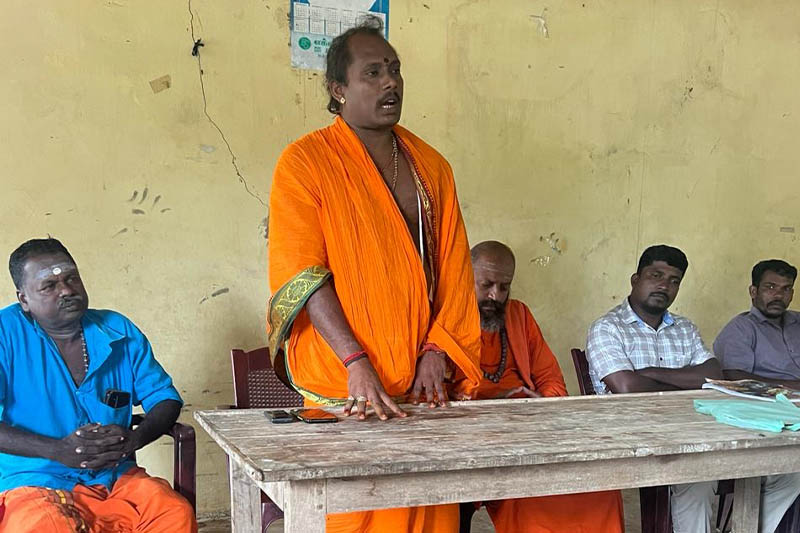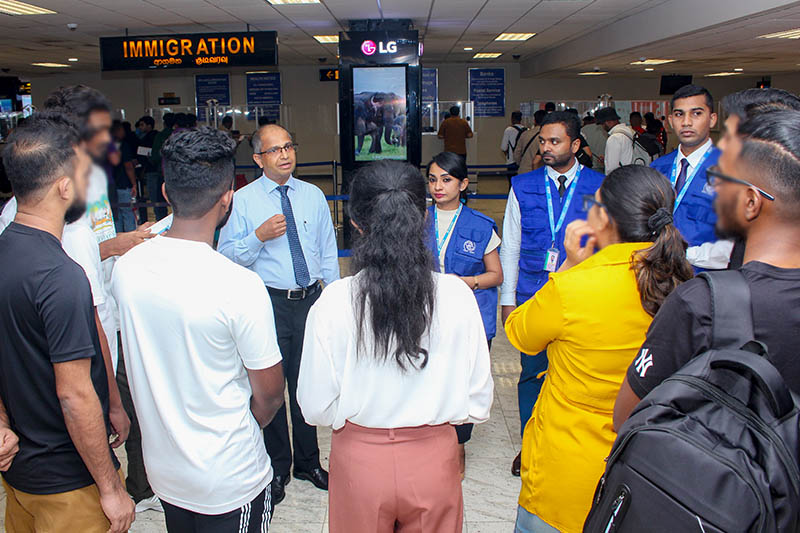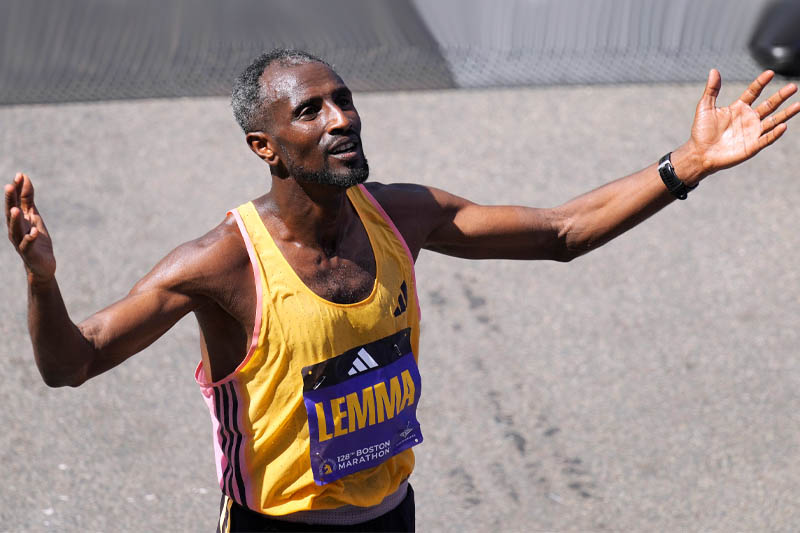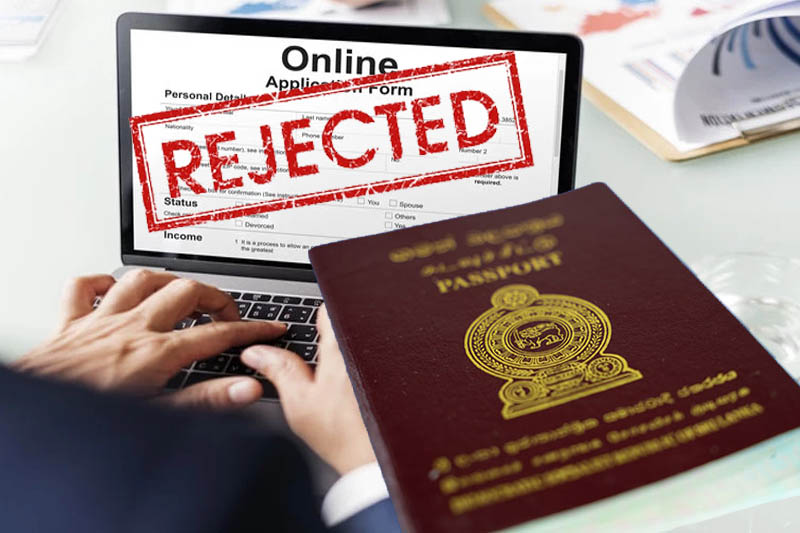The COVID-19 Pandemic Situation is miserably going out of control from the hands of the Government and the Health management system of the country, due to inability of the authorities to take timely and rational informed decisions.
Cluster base identification of COVID-19 cases and their associates was the key strategy adopted by Sri Lanka from its inception, while categorically rejecting any possibility for risk of its Community Spread. However, it is evident that the COVID-19 pandemic is now widely spread into the Society and the Authorities are no longer talking about any clusters .
Had the truth about the Community Spread of pandemic being revealed to the general public without concealing the real facts, they would have volunteered to take self-prevention precautions and believe what health authorities tells. It could have helped to manage the situation more effectively than now.
Moreover, many sources including the political partners of the present coalition government alleged that the health authorities and the COVID-19 Control Task Force have systematically distorted the real facts on Number of PCR and Antigen Tests done and their results, reported incidences and deaths, vaccination process, drug shortage etc.
This has severely constrained the ability of government to take informed decisions in a timely and relevant manner. As a result, a situation had emerged, where the people and many agencies including a larger segment of medical fraternity to question the authenticity of official figures, statements, and directives of the Government. Because of the fact that the entire COVID-19 management process had turn into a highly politicized operation, the country becoming more and more vulnerable to the pandemic disaster is inevitable.
Some salient features of Sri Lanka’s COVID-19 Control/Management:
- The authority of the health sector specialists was undermined in the COVID-19 Pandemic Control/Management, and their professional advises were unheeded by the Government.
- The whole pandemic control/management endeavour was politicized on one hand, and the GOSL favoured unscientific methods, over the globally accepted best practices on the other.
- Lack of scientific informed (evidence based) decision making by the GOSL with regard to COVID-19 Control/Management.
- Large Majority of the deaths could have been prevented, if Sri Lanka had followed the internationally recommended Vaccination Protocol: i.e., give first priority to vaccinate; a) the Health System personnel, b) other Front-Line people involved in COVID-19 Pandemic Control/Management, 3) the Population over 60 years of age and 4) the persons suffering from noncommunicable diseases. This approach was abandoned, by excluding the 3rd and 4th categories of people, soon after the vaccination process commenced. Accordingly, instead of vaccinating the age 60 & + people and those who were suffering from noncommunicable diseases, the 30 & + age group and various others were given priority; on an ad-hoc basis for the reasons best known to those who changed the protocol.
- Due to adherence of archaic data management methods, the ability to analyze, forecast, predict spatial and temporal trends of Community Spread, and assessment of logistical requirements such as: pharmaceuticals, medical and testing equipment, clinical Gas, ICU bed capacities, hospital, and manpower needs, including procurement processes and lockdowns were all throw into disarray and out of control.
- Poor reporting of actual cases; either due to not collecting or fabricating relevant data, or not doing testing.
- Poor risk communication by authorities, resulted in forming a huge professional and public mistrust on the COVID-19 information presented by the authorities.
Following Outcomes have become apparent due to above situation.
- COVID-19 Virus has already spread into the Community.
- Sri Lanka has very high Deaths per Million individuals.
- We have the highest case fertility rates due to COVID-19.
- We have very high positivity rates and very minimum testing.
- Indicates that the hospital system is overwhelmed: not enough ICUs, Oxygen, Drugs and Trained Staff available to care for patients.
- Public dissatisfaction is rising on the face of unsound and inconsistent GOSL directives and decisions.
- Sri Lanka classified into the “RED LIST COUNTRIES”, with highest COVID-19 risk.
In the light of the above following are recommended to the GOSL for its consideration:
1) Replace the existing PRESIDENTIAL TASK FORCE ON COVID-19 CONTROL with the NATIONAL COUNCIL FOR DISASTER MANAGEMENT, which has the legal teeth to control and manage the present pandemic.
As per the section 2 of the Sri Lanka Disaster Management Act. No. 13 of 2005 , there shall be a unique body called the NATIONAL COUNCIL FOR DISASTER MANAGEMENT (NCDM). According to Section 3.1 of this Act, the NCDM is consist of the President of the Country as its Chairman, and the Prime Minister, the Leader of the Opposition and all relevant ministers, Chief Ministers, including 5 Parliament MPs to represent the Opposition, as its other members.
It should be noted that there is no other comparable statute as powerful as the above act in this Country, which has vested with wide range of powers to handle any type of disaster of any origin or magnitude including current COVID-19 Pandemic.
Unfortunately, it seems that the Government of Sri Lanka is unaware of this statute, and its provisions. This has been the case thus far with regard to many governments in the recent past. Therefore, the NCDM was obsolete since it was mandated, and it was nominally summoned few times since 2005 to date, that was also without its full constituents members. There will be Subject Specific Technical Advisory Committees to assist the National Council for Disaster Management and the Disaster Management Centre .
Instead of trying to re-invent a wheel, GOSL should have use the Disaster Management Act to control/manage the COVID-19 Pandemic. It has the mandate to formulate a National Policy and programme on the management of any disaster. Based on such National Policy and Program it is mandatory to prepare a National Disaster Management Plan and the National Emergency Operation Plan. The first National Disaster Management Plan was prepared in 2014 with a time horizon of 4 years (2014-2017). As per the Disaster Management law it is mandatory to revise the National Plan in every four years. Accordingly, a revised plan was prepared in 2018 as per the Sendai Framework for Disaster Risk Reduction (2015-2030) protocol; that Sri Lanka has ratified, for the next 12 years (2018-2030). Unfortunately, this plan lies unfollowed at the Disaster Management Centre, and today it is functioning without a plan, approved by the Cabinet of Ministers.
There shall be a special organization created by the Disaster Management law called Disaster Management Centre (DMC) and a Technical Advisory Committee to guide it . Sadly, the DMC is idling at present together with its trained staff and mechanisms, and island wide networks including the Village Level DM Committees, which could have effectively used for COVID-19 pandemic control work at the district and community levels. Moreover, it shall be the duty of every Ministry, Government Department and public Corporation to prepare a Disaster Management Plan with respect to such organization to counter any disaster or impending disaster, based on the National Disaster Management Plan and in accordance with such guidelines as may be specified by the Council .
In an eventuality of a disaster the President may, on President’s own motion or on the advice of the Council, by PROCLAMATION DECLARE THAT A STATE OF DISASTER EXISTS, either in respect of any area or areas specified in such proclamation, or of the whole country . None of these legal provisions have been used by the government at precent instance. Further, provisions are there to maintain an emergency fund to enable the people under such emergency situation; deviate from the normal public administrative circulars and public procurement procedures and mobilize resources at all levels etc. to bring relief to the affected people . Also, delegation of authority, the professional indemnity for the public officers and procedures to be followed upon the declaration of a State of Disaster are there in this statute and readily available to use at this critical hour of COVID-19 Pandemic. All disasters are well defined and listed in this statute and also it is subject to amend as and when required.
2) ENABLE THE PRESIDENT to make EVIDENCE BASED INFORMED POLICIES AND DECISIONS on COVID-19 Control for Implementation, which is currently lacking.
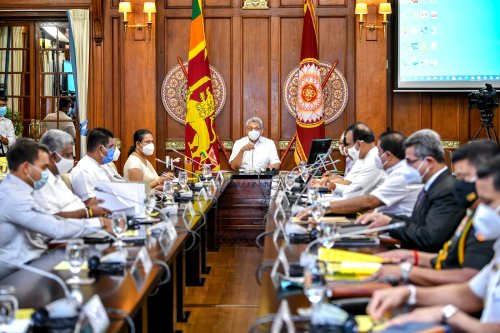
Following actions will be useful in this regard. This can be done through by empowering the NATIONAL COUNCIL FOR DISASTER MANAGEMENT (NCDM).
a. Appoint a TECHNICAL ADVISORY COMMITTEE ON HEALTH FOR COVID-19 MANAGEMENT, under the Disaster Management Law, comprising of relevant Health Sector experts, sans politicians including the Minister/s of Health. This could be headed by Director General of Health, to make recommendations to the President and the National Council of Disaster Management to take decisions on:
- Prevention of Pandemic,
- Pandemic Control,
- Patient Treatment,
- Patient Care,
- Quarantine Practices,
- Vaccine Administration Protocol and Implementation methodology.
- Recommendations on Lockdowns and Travel bands etc.
- Dissemination of Information on prevalence on Cases, Deaths, Patients under Treatment at Hospitals and Homes, and under Quarantine etc.
- Research and Development.
b. Establish a COVID-19 MANAGEMANT INFORMATION CENTRE (CMIC) with a GEOGRAPHIC INFORMATION SYSTEMS (GIS) PLATFORM to provide Real-time Data and Information on GND Level to the relevant Authorities. The Epidemiology Unit, MOH Offices, DMC, Department of Census and Statistics, and other agencies should facilitate this Centre. The CMIC will provide the necessary spatial data enabling to:
- Act as a single point source of information for Dissemination.
- Maintain a database of COVID-19 prevalence and identify the Real-time Spatial and Temporal Trends of the Spread of the Pandemic.
- Manage a digitized COVID-19 and vaccination information database. This will prevent manipulation of data by anyone for undue political gains and to hoodwink the people on the real situation.
- Prioritize areas to conduct PCR tests, Administration of Vaccine Programme, and areas to be locked down or restricted.
- Assist to identify a system on NEED BASED Rational Allocation of Resources to the National and Regional health systems.
- Issue official communiques, at least twice a day at a specific time in all media to disseminate information to the nation. This should be done by specific designated specialists. Ex. Health related information including New Cases, No. Recovered, Deaths, PCR and other Tests, Quarantine Status, Vaccination Information etc. by the DG Health; Declaration of Lockdowns, Curfew and COVID-19 related enforcement of law and order by the Police Spokesmen; Provision of logistics to construct and refurbishment of facilities, supply of critical support by the Head of the relevant Committee or spokesmen for implementation of National Emergency Operation Plan established under the DM law. This will reduce the current confusion in the information dissemination, where number of incompetent persons often issue deferent contradictory statements, creating huge suspicion in the society.
- Establish confidence among the General Public on the authenticity of the data, information, and statistics. Currently the Medical Specialists and the General Public are skeptical about the Corona Related Data and information issued by the Government and the Health Authorities.
c. Entrust the armed forces (SL ARMY, SL NAVY, SL AIR FORCE & CIVIL DEFENSE FORCE) to implement the NATIONAL EMERGENCY OPERATION PLAN ON COVID-19, supplementing the Health Sector responsibilities.
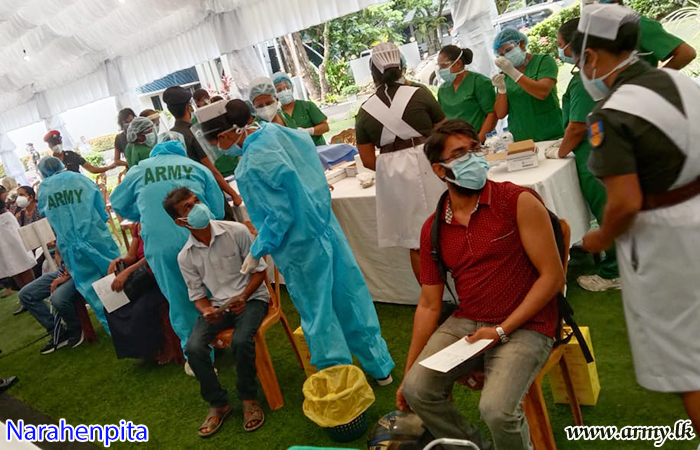
- Monitoring and Facilitating the COVID-19 Patient Care Centres that are supplementing the formal Health Sector Mechanism.
- Assist / supplement the Immunization Programme.
- Assisting in identification, refurbishment, construction, and management of COVID-19 Management Centres to facilitate the overall National Pandemic Control Programme.
- Assist Police to implement of the lockdowns and pandemic control regulations and to undertake any other assignments entrusted to.
- Assist MOHs and PHIs to implement functions.
- Transportation of COVID-19 Patients.
d. Implement by the SRI LANKA POLICE:
The directives of the President on the recommendation of Technical Advisory Committee on Health for Covid-19 Management, duly endorsed by the National Council for Disaster Management.
- Declaration of Lock Downs/Curfews.
- Law Enforcement with regard to Covid-19 Control.
- Assist MOHs and PHIs to execute their duties.
- Stop all the politically motivated suppressive actions in the guise of COVID-19 Control by the Police and intelligence units; violating the basic human rights, such as arresting people who do not process vaccination cards, for sharing posts in the social media, including going after the persons restricting their right to freedom of speech and expression of thoughts etc.
e. Direct Ministry of Health to use actively the full potential of the Ayurveda Hospital and Dispensary Network of the Country for treating and caring for the COVID-19 patients.
f. Direct relevant Authorities to Regularize the imports of drugs and equipment such as Rapid Antigen Kits etc., and their retail prices, that are essential for COVID treatment and management.
g. Establish a Separate Fund to provide economic and financial assistance to the needy people, as per the provisions widely available in the Disaster Management Act of 2005.
h. Implement an Official Programme to appreciate the bravery and the commitment of Health community and all the other non-health entities with a view to encourage and apricate their great commitment towards COVID-19 management.
(3) MINISTRY OF HEALTH
a. Comply with the recommendations of Technical Advisory Committee on Health for Covid-19 Management.
b. Give a wide publicity on the locations, from where the vaccines could be obtained by the general public. If there is a systematic way for the people to know about such locations, they will not unnecessarily rush to places on speculations. VACCINATION AGAINST COVID-19 IS NOT A PRIVILEGE OF A FEW, BUT A RIGHT OF ALL CITIZENS.
c. Create Hot (for the Obvious COVID-19 Cases) and Cold Hubs (for the other patients) within hospitals to segregate the patients.
d. Promote work from home to the maximum which is the hallmark of social distancing the primary goal as stipulated by the WHO.
e. Consider the possibilities of covid related respiratory complications in all ages and take due cognizance of this fact including cessation of smoking.
f. Not to consider vaccination a stop gap to encourage people bringing those stipulated back to work.
g. Implement a transparent system to direct persons with severe COVID symptoms to report to health centres, while the persons with mild symptoms to stay at home and take treatments on medical advice.
h. Provide sufficient numbers of Personal Protective Equipment (PPE) kits, Masks, Sanitizers etc. to protect all health workers including those who are visiting homes to monitor the patients and treatments, and all others who are engaged in detection, transportation, conducting postmortems, disposing dead bodies at incinerators etc., to protect them from the virus.
(4) GENERAL PUBLIC
a. Comply with the Health Ministry advisories and instructions.
b. Stay indoors always and do not go out of the house unless there is a critical need.
c. Maintain Bio-bubbles with an immediate neighbor for an urgency and do not mix with others of the neighborhood.
d. Maintain the Two Meter Social Distance at every place.
e. Wear Masks when going out of the house, and during the self-quarantine and undergoing home treatments.
(5) MEDIA INSTITUTIONS
a. Set-aside political and self-agendas.
b. Engage in dissemination of real facts and figures, while refraining from conducting programmes that could ridicule the public perceptions on the scientific reasonings.
Prof. Krishan Deheragoda
